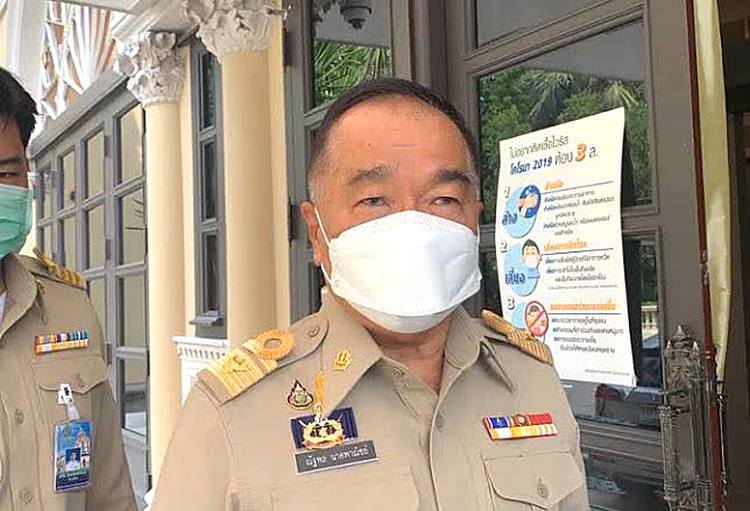
Secretary-General of the National Security Council (NSC), Gen. Nattaphon Narkphanit, says the emergency decree may cease to be enforced by the end of September, as the new version of the Communicable Diseases Act is more comprehensive. The government’s Center for COVID-19 Situation Administration (CCSA) may also be converted into a different administration.
In response to reports that the authorities may consider revoking the emergency decree, Gen. Nattaphon, as Director of the CCSA’s Operations Center, said on Monday that everything has been prepared in advance and in accordance with the policy of Prime Minister and Defense Minister, Gen. Prayut Chan-o-cha, to be ready for different circumstances. The enforcement of the emergency decree may not satisfy all people, but it has not affected their daily lives because it is only being used to help limit the spread of the disease.
Gen. Nattaphon said the Ministry of Public Health has been working to improve the Communicable Diseases Act, so that it is more responsive to addressing the spread of diseases. The CCSA is ready to act according to the new version once it is enacted and replaces the emergency decree. It is possible that the emergency decree will no longer be enforced after September 30th because the situation is starting to stabilize. Currently, the private sector is cooperating well and the people have a good understanding of the situation. Although there are some people refusing to follow the protocols, the overall picture is acceptable. However, the outbreak situation is not the only factor influencing any decision to lift the emergency decree. It is up to the consideration of the Prime Minister, as CCSA Director, and the government.
The NSC Secretary-General added that if the emergency decree is no longer enforced, the CCSA may also end its mission, or it might be converted into a different administration supported by the new law, which can respond to most issues. It was proposed by the Ministry of Public Health, which is well aware of the problems and solutions. If the emergency decree is lifted but the new version of the Communicable Diseases Act is not yet enacted, further consideration will be given. Nonetheless, the government is working to expedite the process, so that it can be used promptly.
Concerning the CCSA’s position on easing more restrictions, Gen. Nattaphon said that the CCSA will have to wait for more information from the Ministry of Public Health and seek opinions from related agencies. Ministries overseeing economic affairs may have proposals to ease more restrictions that have an impact on the economy. (NNT)
 |
 |
 |





